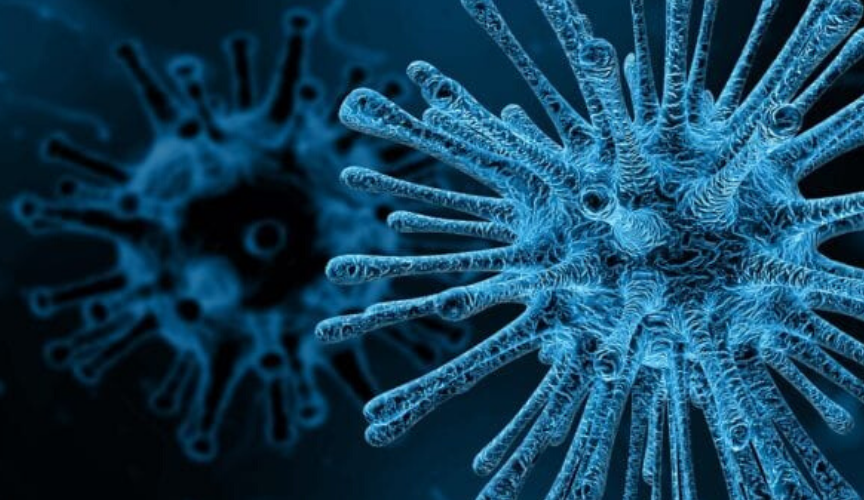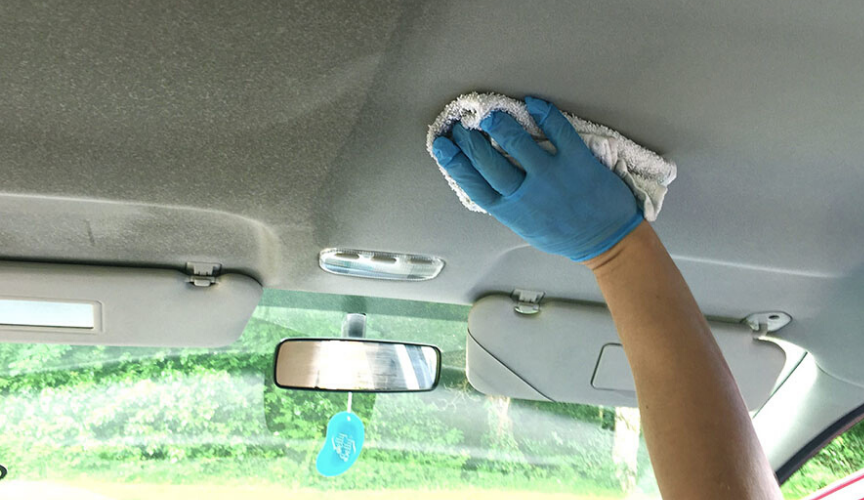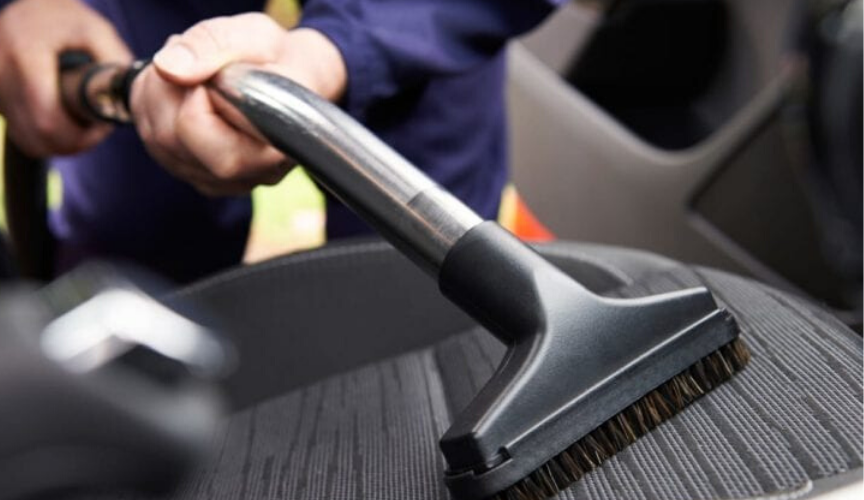https://www.jthughes.co.uk/Blog/View/Combating-coronavirus-by-keeping-your-car-sanitised/12252
Combating coronavirus by keeping your car sanitised
Disclaimer: JT Hughes encourages opinion in the comments section below or their Facebook page but please be respectful. Offensive language is not acceptable and will be deleted. JT Hughes makes no representations as to the accuracy or completeness of any information on this article or found by following any link within the article.

The new coronavirus, or COVID-19, is making its way across the globe with many experts now predicting we'll soon be dealing with a pandemic.
Here in the UK, we're still dealing with relatively low numbers of cases, but these are climbing every day, and the country's Chief Medical Officer Chris Whitty has told the country to brace itself for a steep rise in cases over the coming weeks.
While the exact locations of each case in the UK aren't being disclosed, we do know that a number of people have already tested positive for coronavirus in the West Midlands, and with cases growing every day it won't be long before it touches every part of the UK
Medical experts and epidemiologists have already made it clear that the best thing we can do as individuals to help prevent the spread of this flu-like disease - and other viruses like it - is to wash our hands regularly and practice good hygiene. For those of us who travel by car a lot, this includes taking good care of your vehicle and sanitising it regularly.
How does coronavirus spread?
The new coronavirus is an infectious virus spread from person to person most commonly via cough droplets. Because it's a very recent disease, scientists are not yet certain of precisely how easily the virus spreads and how long it can survive in the air or on surfaces, though it's likely that it can to some extent. Touching a surface which contains germs and then rubbing your eyes, for example, could be a possible source of infection.
Ads by JT Hughes
Scroll to continue with content
What's my car got to do with it?

Cars are breeding grounds for germs and viruses. We're often in and out of cars, which means we're always bringing germs and bacteria from outside areas to our cars; if you're sharing a car with someone else, you're also putting yourself in prime position - a small, enclosed space with little air circulation - to catch any viruses your co-passenger has, particularly if the windows are shut.
Most of the time when we clean our cars we're not doing it with viruses in mind. Shampooing and vacuuming your car won't have much of an effect when it comes to tackling viruses like those which are spreading the current coronavirus, so it's important to consider how to sanitise your car to kill germs and bacteria regularly, especially during flu season and other outbreaks.
Where are the germs on my car?
In a nutshell - everywhere. Any surface you might have touched, or which might have been touched by passengers or passers-by could have all sorts of germs on it. The most common places to find germs include:
- Your car keys, which are frequently handled and left on other surfaces
- The steering wheel, door handles, and controls
- Car seats and upholstery, which can be a breeding ground for bacteria from crumbs if not cleaned thoroughly
How should I clean my car to get rid of germs?

Before you go looking for a hazmat suit, it's perfectly possible to keep your car as germ-free as possible with regular, proper cleaning habits, particularly during the winter months. Here's a breakdown of the most important aspects of keeping your car sanitised from viruses and bacteria:
Good old soap. Soap chemically interacts with the surface of the virus in a way that degrades it very quickly and helps destroys the virus.
If you are in an environment where the use of hand sanitisers is encouraged, this may seem counter-intuitive, but while alcohol-based products may do a fine job of eliminating microbial threats, they're not actually ideal for car interiors.
Conveniently, soap is a key ingredient in a lot of easily obtained items — classic liquid hand or dish soaps, for example. The trick here is to avoid any cleaners that are labelled as being free of detergents. If you're already sitting on a cache of automotive cleaning supplies, you're probably in good shape - Basic wipes, for example, contain a mild detergent.
For those with leather interior bits, makeup removal wipes are a great solution; that's because skincare products typically contain moisturisers, which are good for organic trim materials.
Unlike our skin, which has the ability to self re-moisturise, your car interior can't.
Both alcohol- and detergent-based cleaners can dry out organic materials. In other words, if it leaves your hands feeling dry after use, chances are it will sap the natural oils out of your car's leather interior, too.
If you don't have access to detergent-based cleaners that contain moisturisers, or you plan to use an alcohol-based cleaner, you can mitigate the drying effects with leather conditioners. These will replenish the oils that your cleaning process depleted.
As an added bonus, leather conditioners tend to contain surfactants, which are the chemicals that help cleansers do what they do. They reduce the surface tension of water, helping it get into places it may not otherwise. In other words, they make water wetter.
Ever used dish soap to clean a tent, only to find out it made the water leak right through the material? Congratulations, you already know how surfactants work, and they do the same thing to the outer layer of coronavirus, effectively neutralizing it.
You shouldn't rely on conditioners alone to keep your leather surfaces free of viruses, however, and you don't want to over-use them, as they will leave leather greasy if you saturate it.
If you use a product advertised for both cleaning and treating interior surfaces, make sure its packaging indicates it's safe for leather.
Regardless of what you use and how you use it, remember to wipe surfaces down after you're done cleaning them. Even gentler cleansers shouldn't be left to linger on your interior materials.
For those without real leather, there's more good news. While these vinyl or other synthetic interiors should not be cleaned with alcohol- or bleach-based cleansers, they do have one key upside: They're much easier to disinfect. They don't absorb anything, so once you clean the surface, it's clean
What about other surfaces, or items like key fobs and such, which may not have been built to the same exacting standards as highly trafficked interior bits?
Painted surfaces will not love alcohol, but will generally tolerate bleach well. Vinyl-wrapped surfaces — many chrome' surfaces are actually vinyl wraps — will not do well, and the finish will be damaged. Simple plastics can tolerate bleach well.
What else should you avoid besides bleach?
All solvents (alcohols, acetone, kerosene, etc) should be avoided, not just because they can damage expensive interior bits, but also because they don't really affect viruses.
If you're going to use household cleaning wipes, absolutely avoid anything with bleach - beware of spray disinfectants, as they only work through direct contact. If you miss a spot, you may as well have not used anything at all.
If you are frequently swapping between cars that you don't own. Focus on the steering wheel, assorted switchgear, shifter, and the [infotainment interface] The rearview mirror merits a wipe, too, [and] don't forget the petrol cap!
If you're low on supplies, you can probably afford to skip the seating surfaces, as they don't really touch the parts of your body likely to come into contact with viruses. Unless, of course, you're a taxi driver. The best advice for those who carry passengers for a living is to do so in a car with the simplest, most easily wiped-down interior possible. Plastic dashes and vinyl seating surfaces are far more easily cleaned than those adorned with fancier materials.
So, when cleaning your car's interior, keep these tips in mind:
- Soap is always your best bet. It is harmful to coronavirus.
- Avoid bleach except on simple plastics.
- Don't use solvents.
- Hand sanitisers contain alcohol, which can dry out leather. Use leather conditioner to keep it healthy.
- When in doubt, test cleaners on a surface that can't be easily seen first.
- Wipe off what you wipe on; don't leave chemicals to linger.
- Prioritise the surfaces you touch. Don't forget buttons and switches, your rearview mirror, even your petrol/diesel cap.
- Taxi drivers should stick to the basics. Simpler interiors are the easiest to clean.
While we might still be a long way from Wuhan, Shropshire and Mid - Wales isn't immune to epidemics of deadly diseases and we've certainly faced a difficult flu season already this year; by keeping your car properly clean and sanitised, you're doing your best to keep yourself and your family safe during any kind of outbreak.